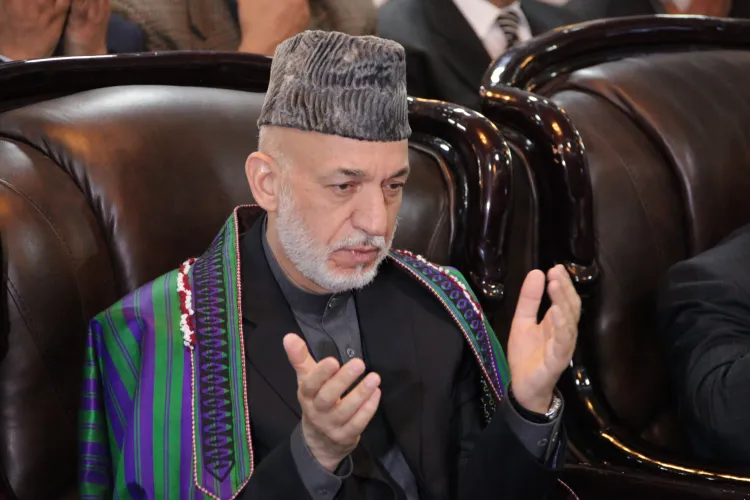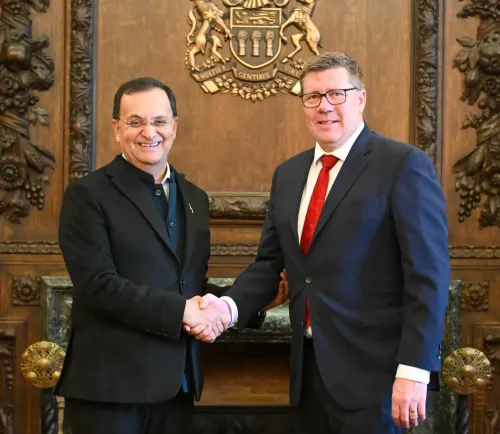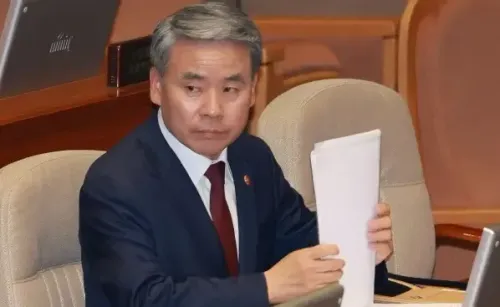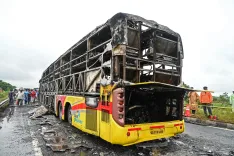Did Former Afghanistan President Karzai Condemn Pakistan's Airstrikes on Kabul and Paktita?

Synopsis
Key Takeaways
- Karzai condemns airstrikes as violations of international law.
- Call for diplomatic engagement between Pakistan and Afghanistan.
- Abdullah Abdullah emphasizes the need for dialogue.
- Explosions caused panic among Kabul residents.
- Potential escalation of tensions in the region.
Kabul, Oct 10 (NationPress) Former President of Afghanistan, Hamid Karzai, expressed strong disapproval towards Pakistan for executing airstrikes on Kabul and Paktita, labeling the act as a clear infringement of international laws. He called upon Pakistan to reconsider its misguided and detrimental policies and to foster relations with Afghanistan based on amicable and civilized interactions.
Karzai's remarks followed a series of explosions in Kabul that residents and analysts suspect were instigated by unprovoked cross-border airstrikes. The Afghan capital reverberated with powerful blasts, with eyewitnesses reporting the unmistakable sounds of aircraft flying overhead.
“Former President of Afghanistan, Hamid Karzai, views Pakistan's airstrike on Kabul, the heart of our beloved nation, and Paktika province as a clear violation of international statutes, an affront to our sovereignty, and an act of aggression against Afghanistan's airspace. He condemns this act in the strongest possible terms. Karzai emphasizes that Pakistan's approach to Afghanistan and the region has been reckless, lacking foresight and long-term strategy; the current situation is a direct result of these misguided policies,” Karzai articulated on X.
“In light of its international obligations concerning aggression and violations of global commitments, Pakistan should, instead of resorting to tension and violence, reconsider its misguided policies. To alleviate the unfortunate repercussions of these actions, Pakistan must honor the principles of neighborliness and international standards, and engage with Afghanistan through friendly and civilized relations,” he continued.
Abdullah Abdullah, Afghanistan's former Foreign Minister, also criticized the airstrikes in Kabul and Paktita, stating they represent a blatant violation of Afghanistan's territorial integrity. He emphasized the need for dialogue and diplomatic approaches to resolve differences.
“We robustly denounce the recent airstrikes on Kabul and Paktika Province as a clear breach of the country's territorial integrity. Any military action within our borders constitutes a flagrant violation of international law and contradicts the principles of good neighborliness and the United Nations Charter. The people of Afghanistan demand full respect for their borders and territorial sovereignty from all nations, particularly their neighbors. We advocate for rational engagement, diplomatic solutions, and constructive negotiations to address any disputes, firmly believing that differences should be settled through dialogue and mutual understanding,” he stated on X.
The explosions, believed to have originated from District 8 in eastern Kabul—an area that hosts vital government facilities and residential neighborhoods—sparked widespread panic. This incident coincided with Pakistan’s Defence Minister Khawaja Asif delivering a heated address in the National Assembly, suggesting a collapse in diplomatic decorum.
“Enough is enough; our patience has worn thin. Terrorism emanating from Afghan territory is unacceptable,” Asif remarked, referencing a previous visit to Kabul by Pakistani officials, during which Afghan authorities allegedly failed to provide assurances against militant activities targeting Pakistan.
While Pakistan has not officially acknowledged launching any strikes, the timing of Asif’s statements alongside the subsequent explosions in Kabul has fueled suspicions of deliberate military action.









